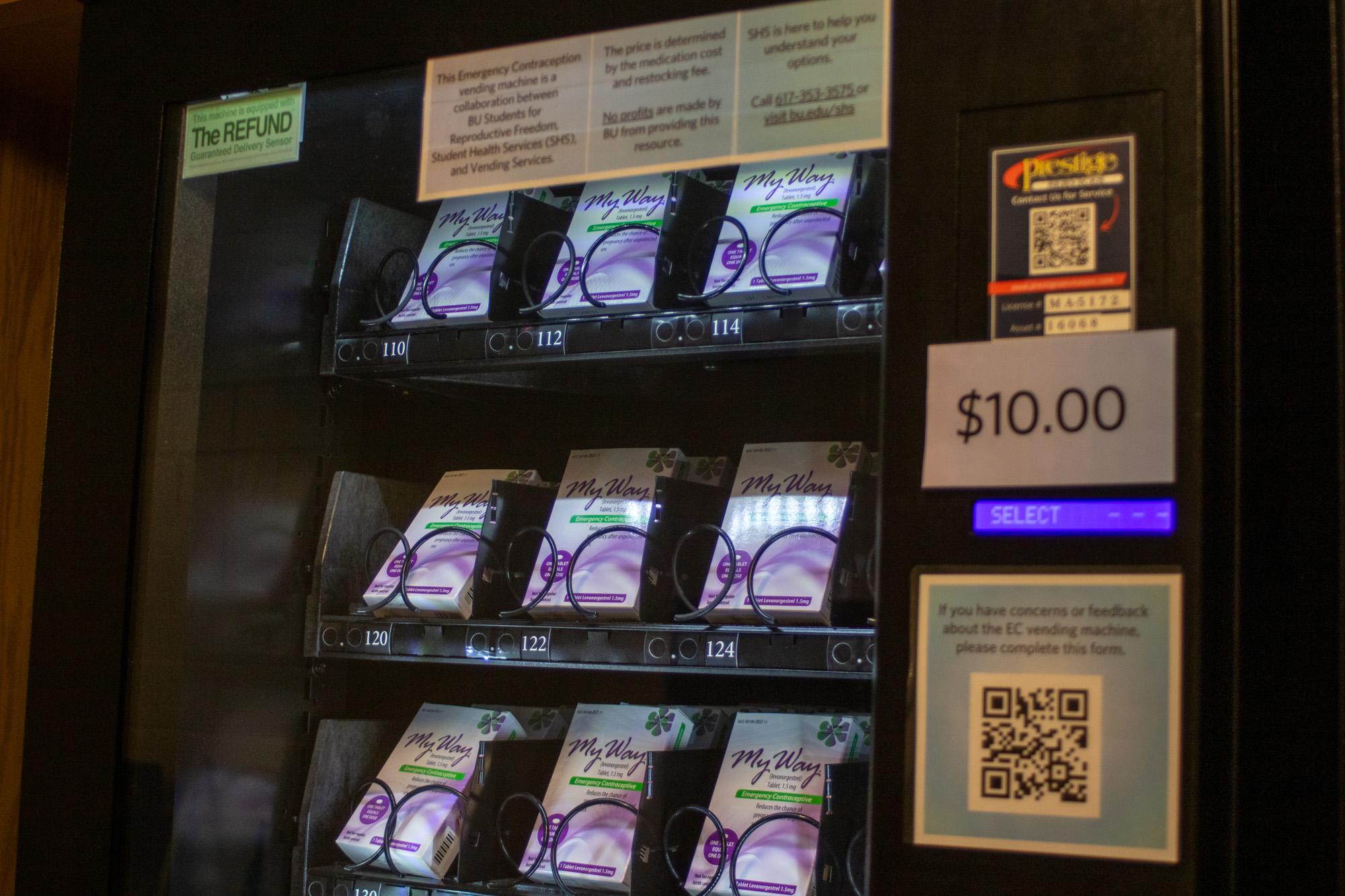Boston University Medical Campus installed a Plan B vending machine, marking an advancement in the accessibility of emergency contraception for students.

The initiative was led by Anisha Patel, a third-year medical student, alongside a team from the BU Medical Students for Choice chapter at the Chobanian & Avedisian School of Medicine. The team includes third-year student Kendra Lujan, fourth-year students Margaux Zimmerman, Hannah Nguyen and Eesha Sachdeva and recently graduated student Erika Rodriguez.
Located in the basement of the BUMC Instructional Building, the new vending machine dispenses 1.5 mg of Levonorgestrel, the generic version of Plan B, for $10. The machine aims to provide students with a convenient, discrete and affordable option for emergency contraception, accessible at any time, according to Patel.
This project began two years ago, inspired by the undergraduate contraceptive vending machine in the George Sherman Union in the Charles River Campus, according to Patel.
“It can be challenging with a graduate student schedule to commute to the undergrad campus for resources from Student Health Services or this amazing vending machine,” said Patel. “So, given that the graduate medical campus serves such a diverse and large student population, it seemed like there was a need for this to be in a place that was central for these students to access.”
The initiative started with the involvement of the Director for BUMC Student Affairs of the Medical School, Nichole Ciccarelli, after Patel and her team proposed their plan through a form submission on the Student Affairs website.
“This was truly student-driven,” Ciccarelli said. “If they hadn’t been so thoughtful, so thorough, so persistent, it might have taken even longer. It may never have happened in the first place.”
Patel and her team conducted a student needs assessment survey, which gathered over 500 anonymous responses and revealed that more than 96% of respondents were in favor of the machine. Many expressed concerns about the accessibility of emergency contraception, citing barriers such as “cost, embarrassment and inconvenience,” according to Patel.
Their efforts were then supported by BU Student Health Services, and later, they received support from the student governments of all four medical schools and Associate Dean of Chobanian & Avedisian School of Medicine, Angela Jackson.
“Once we connected to Student Health Services face-to-face, I think that was the biggest step in terms of getting someone from the University to advocate for this project and really put their foot on the pedal for everything,” Patel said.
Assistant Director of Substance Use, Recovery and Sexual Wellbeing Sarah Voorhees, said this initiative aligns with the goals of SHS.
The vending machine features QR codes that link to a feedback survey and additional resources provided by SHS, including appointment scheduling and consultations on sexual health topics.
“These vending machines can make accessing this time-sensitive health care easier and less intimidating,” Caroline Kimball-Katz, director of communications and marketing for the Planned Parenthood League of Massachusetts wrote in an email. “We’re inspired to see young people leading this effort to make sexual and reproductive health care more accessible on campus”
The project was introduced to the student body through a SHS newsletter and at Cones for Consent, an ice cream event that focuses on sex positivity and fostering a supportive campus culture.
“I really hope that this initiative specifically echoes our support for sexual wellness and financial wellness,” Patel said. “In light of all of the challenges with sexual health and reproductive rights in the country, it seems more important than ever to involve our young people and students in this fight for reproductive rights.”

















































































































